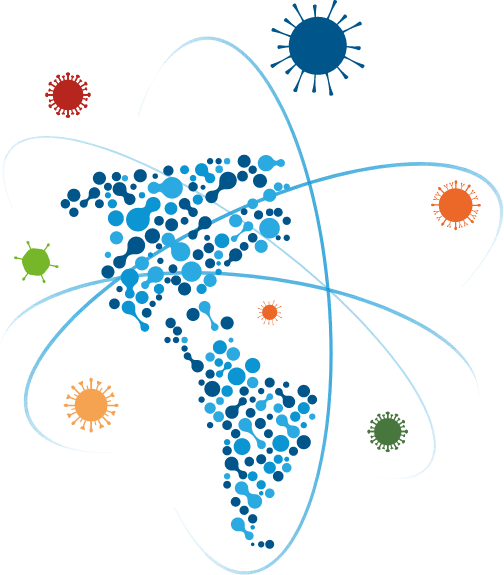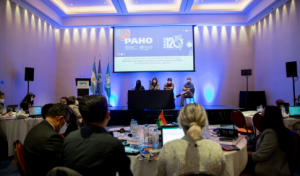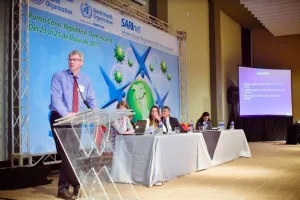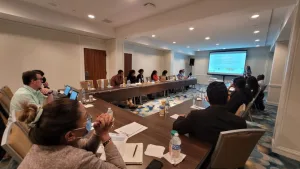About SARInet plus

SARInet plus is a collaboration coordinated by the Pan American Health Organization/World Health Organization (PAHO/WHO) of professionals from hospitals, laboratories, health organizations and other institutions and networks that have participated in the surveillance of Acute Respiratory Infections Serious (SARI) in the Americas.
Created in 2014, SARInet has been a key element in the scientific research of different viral infections (like Influenza) and includes members from countries across the Americas such as Antigua and Barbuda, Argentina, Bahamas, Barbados, Belize, Bolivia, Brazil, Canada, Chile, Colombia, Costa Rica, Cuba , Dominica, Dominican Republic, Ecuador, El Salvador, Grenada, Guatemala, Guyana, Haiti, Honduras, Jamaica, Mexico, Nicaragua, Panama, Paraguay, Peru, Saint Lucia, St. Vincent and the Grenadines, St. Kitts and Nevis, Suriname, Trinidad and Tobago, United States of America, Uruguay and Venezuela.
Three different stages can be distinguished in the evolution of SARInet:
Our mission
Lead in the Region of the Americas the cooperation, exchange of knowledge and experiences related to influenza and other respiratory viruses with epidemic and pandemic potential.

Our vision
To be a network for dialogue, opinion and participation, committed to the generation of scientific evidence that influences the health policies of the countries of the Region aimed at the implementation of measures to prevent, control and reduce the burden of viral respiratory infections.

Our organization
The SARInet plus organization is made up of a Secretariat, Consultative Group and Working Groups. The network consists of member countries, collaborating institutions and individuals.
Secretary
The SARInet plus Secretariat is in charge of the Pan American Health Organization (PAHO). It coordinates the activities of the network, including its regular annual meeting with all members in which experiences of different activities, data and how to strengthen the surveillance network are shared. Among the more specific functions of the network are:
- Provide technical support and training to members to improve SARI surveillance systems.
- Assist countries in assessing their surveillance capabilities and procedures.
- Provide a forum to share good practices of the scientific community.
- Maintain the platform to share information.
- Distribute weekly reports on epidemiological surveillance of influenza and other respiratory viruses in the Americas.
- Distribute other reports and updates on network activities.
- Develop and strengthen strategic partnerships.
- Mobilize technical and financial resources for network activities.
- Support and facilitate technical cooperation between countries.
- Maintain and facilitate the communication of all members of the network.
Read More



